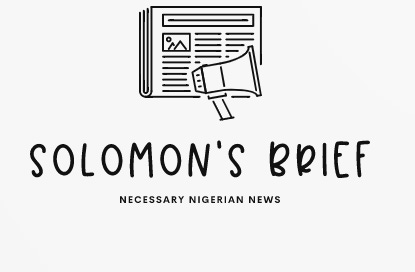* The Naira/Dollar rate was calculated by averaging buying rates from several Nigerian FinTech startups.
Welcome to the Tuesday briefing. This newsletter keeps you updated with the latest news from Nigeria. Don’t forget to subscribe to receive it in your email before 7 am (WAT) every weekday.
Sokoto’s sullen bloodbath
At first, the news was unconfirmed. The bandits, on motorcycles, had attacked the weekly Goronyo village market on Sunday evening and slaughtered a yet-to-be-determined number of people. They also burnt down shops and other buildings. Later on Monday, the Sokoto State Governor, Aminu Tambuwal, confirmed the news. About 43 people were officially counted as dead.
Goronyo local government area is about 78 kilometres away from Sokoto city, the state capital. The Gagere river, which eventually feeds into the Niger, runs across its northern corridor. It has a hospital, a central mosque, a primary school, and even mobile money agents. But not enough security, it appears.
Tambuwal, while meeting on Monday with the Chief of Army Staff, Farouk Yahaya, called for more troops to be deployed to Sokoto state, which has cut telecoms service in some areas to deal with the ravaging bandits (read: terrorists) who continue to terrorise the northwest.
In what has now become a tradition after these tragic attacks, President Muhammadu Buhari released a fiery statement condemning the attack. “The clock of your ultimate destruction is ticking, as you will no longer have a place to hide,” he told the bandits. The slaughter was framed as “cowardly attacks on innocent people” by bandits “under pressure” from the onslaught of “our gallant security forces.”
But for how long will the innocent continue to die in an offensive that has now lasted for months?
New weapons: The federal government has now taken delivery of all the 12 A-29 Super Tucano fighter jets expected from the United States, a development expected to boost the fight against terrorism across the country.
Related: The US Deputy National Security Advisor, Jon Finer, met with foreign minister Geoffrey Onyeama on Monday and promised that the US would help Nigeria fight terrorism.
What else is happening?
Nnamdi Kanu: The federal government has amended its charges against the IPOB leader, bumping it from five counts to seven. His case is expected to be heard at the Federal High Court in Abuja on Thursday and tensions are high across eastern Nigeria over what could be his first public appearance in many months. The last time Kanu was scheduled to appear in court, the Department of State Services (DSS) failed to produce him.
Twitter ban: The Minister of Information, Lai Mohammed, says the requirements being imposed on Twitter before its Nigerian suspension can be lifted will also apply to other social media services like Facebook and Instagram. On when the ban will be lifted, he said “things are looking very positive and rosy” but declined to give a specific date.
Ibrahim El-Zakzaky: After battling to secure release from detention, the Shia cleric and his wife have sued the DSS and the Attorney-General of the Federation (AGF) for N4 billion over the seizure of their international passports.
#EndSARS: The Lagos judicial panel on police brutality ended its public sittings on Monday. According to the panel, it awarded a total of N410 million to 70 victims. Panel chairman, Justice Doris Okuwobi said investigations into the Lekki tollgate shooting had also been completed and a report would be delivered to the state government, which is expected to announce it to the public.
Pandora Papers: A Nigerian judge, Stella Ogene, has been fingered in the latest Premium Times exposé on public officials and how they move their money into secret offshore accounts abroad. Justice Ogene had headed the Delta State Customary Court of Appeal for 21 years.
And that’s it for today. Have a fantastic day!
P.S. I am currently re-reading ‘How Asia Works’ by Joe Studwell. It’s a fascinating treatise on how poor countries become rich, or not.




